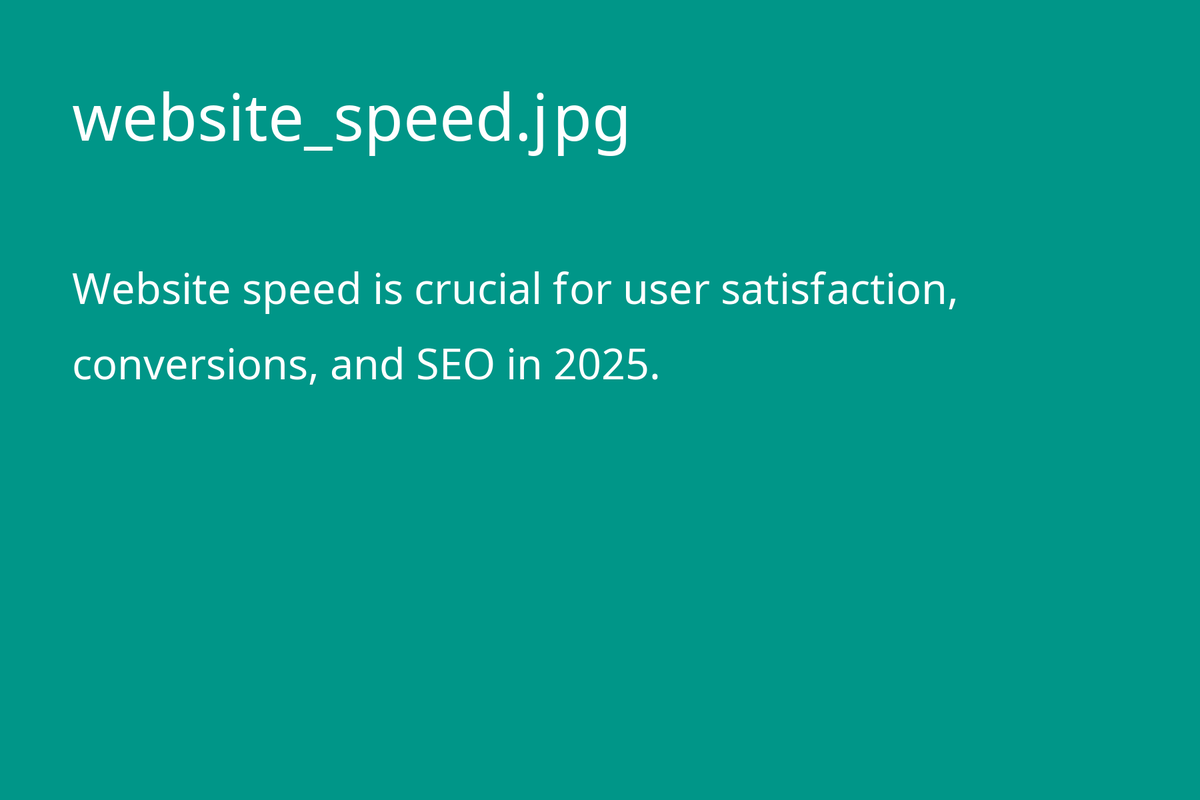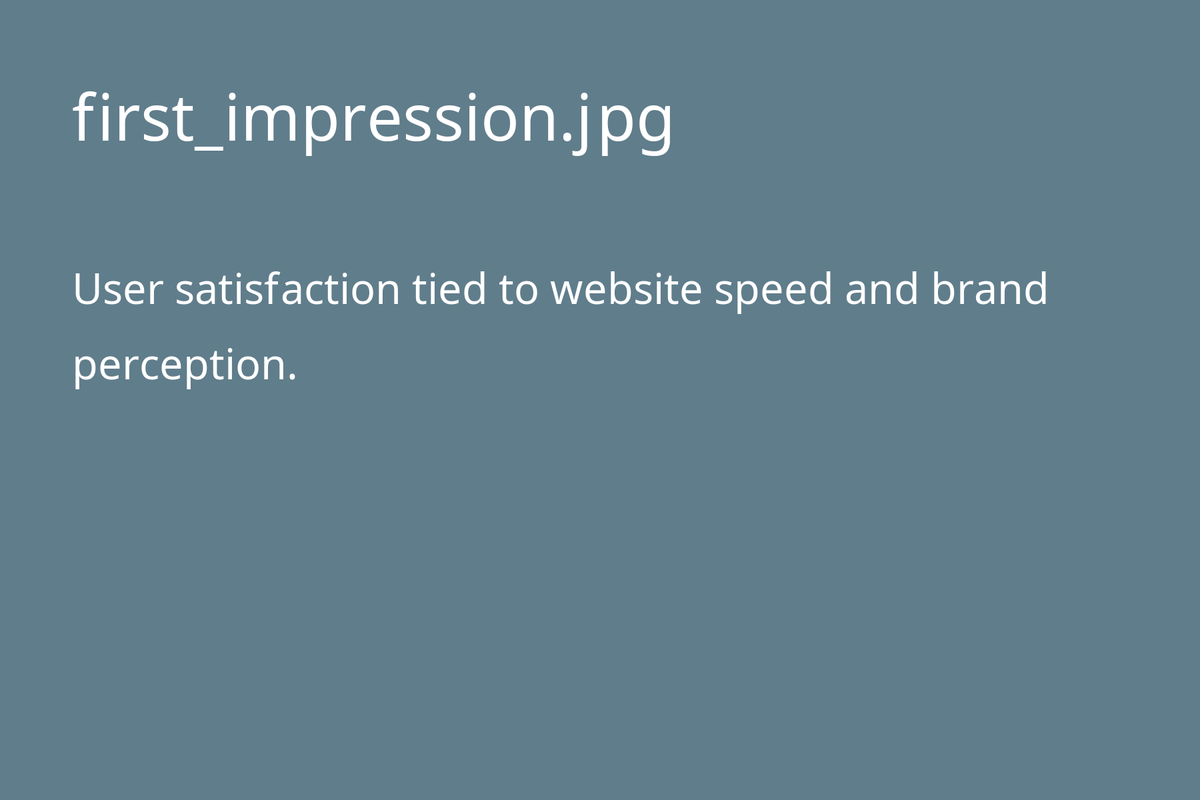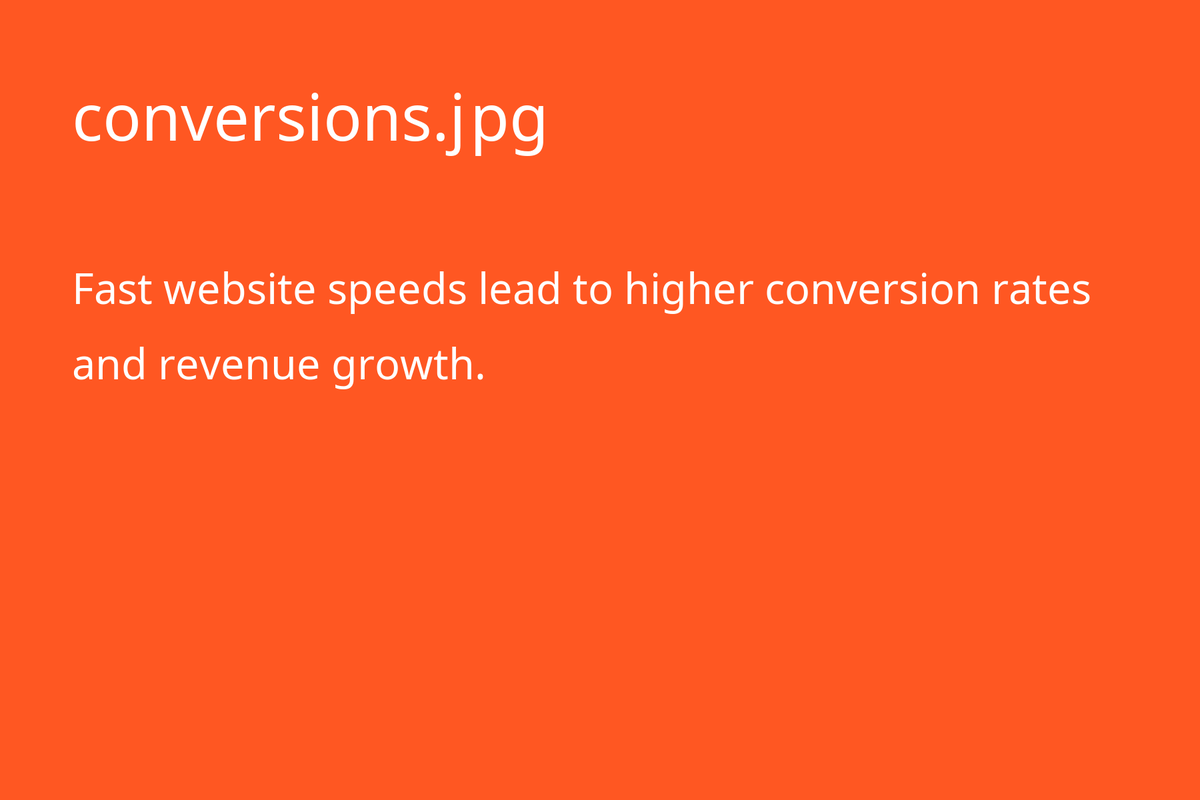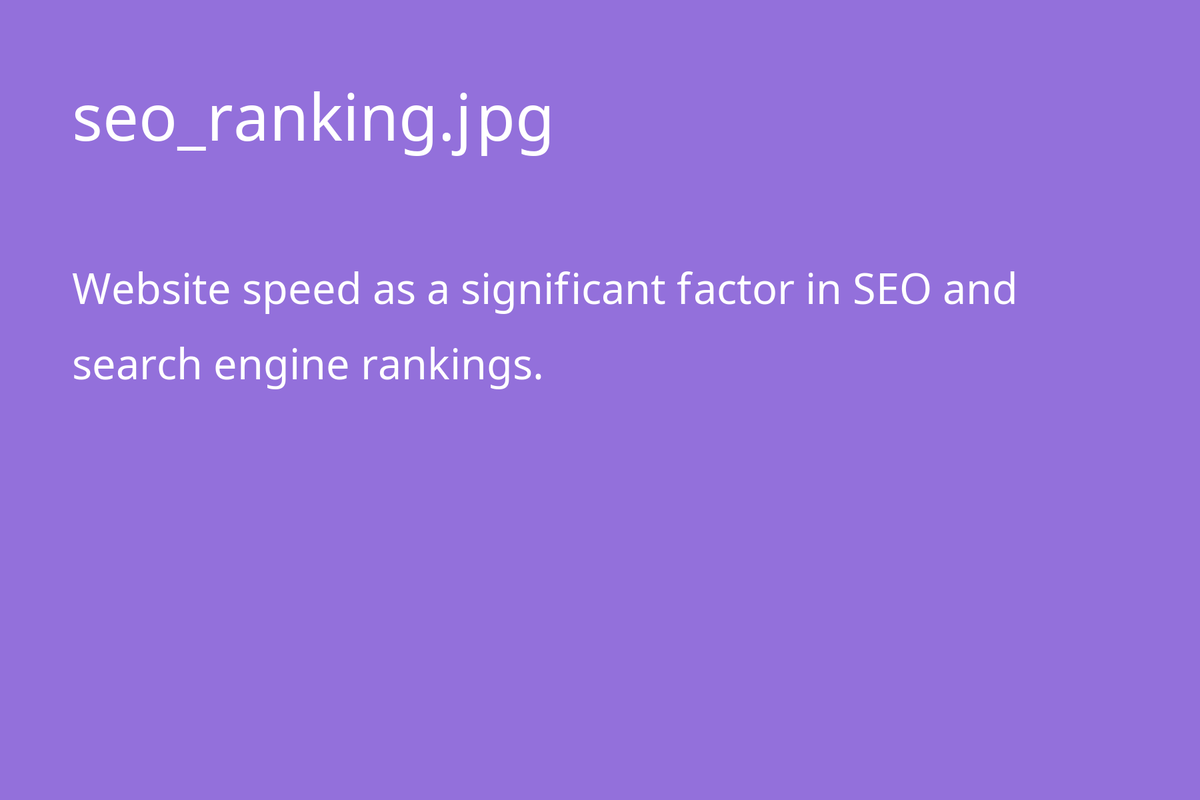
Written by
Content Editor
Authored on
Why Site Speed Is More Critical Than Ever
In the rapidly evolving digital landscape of 2025, site speed has emerged as a crucial determinant of user experience, search engine ranking, and, ultimately, business success. As user expectations soar, driven by advancements in technology and connectivity, understanding and optimizing site speed is no longer optional—it is essential.

User Expectations and Behavior
With the advent of powerful devices and lightning-fast internet connections, users demand websites to load almost instantaneously. Research highlights that over half of users will abandon a page if it takes more than three seconds to load. This impatience is not just a fleeting frustration; it directly translates into negative perceptions of a brand's reliability and professionalism, potentially leading to lost conversions and decreased customer loyalty.
Impact on Business Performance
A delay of just one second can cause a staggering 7% reduction in conversion rates. This sensitivity compounds with each additional second, which can result in a decrease in conversion rates by an additional 4-7%. When page load times stretch to five seconds, bounce rates can skyrocket to as high as 90%. For businesses, this means that every millisecond counts, with slow sites risking significant revenue losses.

Search Engine Optimization (SEO)
Site speed is not only a matter of user satisfaction but a pivotal ranking factor in search engine algorithms. Google, for example, assesses page and site speed through metrics like Core Web Vitals, emphasizing real-world user experience. Slow-loading sites are penalized with lower search rankings, drastically affecting their visibility. On mobile devices, where most internet usage occurs, site speed becomes even more critical. A sluggish mobile experience can quickly lead to user disengagement and loss of potential business.
Steps to Optimize Site Speed
To stay competitive in this high-speed environment, businesses must invest in technical optimizations that enhance site speed. This includes leveraging efficient coding, optimizing images, utilizing content delivery networks (CDNs), and routinely testing site performance. Such efforts not only improve user satisfaction but also boost rankings, engagement, and, ultimately, profitability.
In conclusion, optimizing site speed is a non-negotiable element of maintaining competitiveness in 2025's digital landscape. As user patience wanes and search engines rigorously evaluate performance metrics, businesses must prioritize quick, seamless access to ensure a positive user experience and strong online presence.
In today's fast-paced digital environment, the speed at which your website loads is more critical than ever before. As user expectations soar and technology continuously evolves, the belief that "speed equals quality" has become deeply embedded in users' minds. Here's why ensuring your site loads quickly is crucial for success in 2025 and beyond.

Impact on First Impressions
First impressions are lasting, and a slow-loading website instantly signals poor performance and unreliability. In fact, users equate the speed of a website with the professionalism and trustworthiness of a brand. Even a mere half-second delay in load time can noticeably reduce user satisfaction and trust. To keep potential customers engaged from the first click, your website must meet their speed expectations.


Enhancing User Engagement
The digital age has cultivated a culture of immediacy, where patience is minimal. Studies suggest that 53% of users will abandon a webpage that takes more than three seconds to load. This abandonment increases bounce rates, which directly signals to search engines that users are dissatisfied. A fast website not only ensures users stay longer but also enhances their overall engagement with your content.
Boosting Conversions and Revenue
Speed is a crucial factor affecting conversion rates. Each additional second of delay can drop conversion rates by up to 7%. If customers can't access your products or services quickly, they are less likely to make a purchase. Therefore, optimizing your site for speed can directly improve your bottom line, making it a strategic investment rather than an expense.


SEO and Discoverability
Google's Core Web Vitals include site speed as a key metric for ranking. Sites that load faster gain better visibility and higher rankings in search results. However, speed goes hand-in-hand with content quality—it's not a substitute for value-rich content but works alongside it to boost your site's performance in SERPs. Enhancing your site speed not only benefits user experience but also your site's discoverability.
Conclusion
In conclusion, site speed matters more than ever for maintaining a competitive edge in the digital landscape of 2025. From creating positive first impressions to improving conversion rates and search engine visibility, speed optimization is crucial. As technology and user expectations continue to shift towards instantaneity, ensuring a swift, engaging user experience is key to building trust and fostering long-term loyalty.